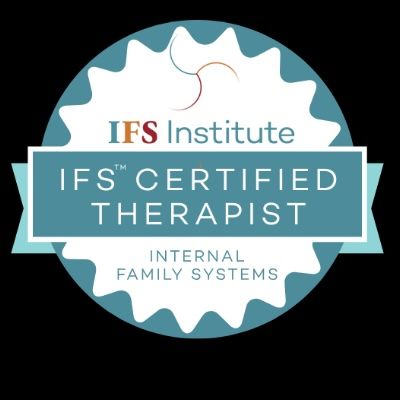Treatment Approach
Internal Family Systems (IFS) Therapy
My approach to trauma therapy is based primarily on the Internal Family System (IFS) model, supported by my knowledge of somatic therapies. IFS was developed by Dr. Richard Schwartz in the 1980's. It is now recognized as an evidence-based approach that’s been successfully used to treat trauma, anxiety, depression, and even physical health conditions such as chronic pain and autoimmune disease.
[See "Resources" tab for published articles on IFS]
IFS is based on the idea that our mind does not represent a single coherent personality, but rather, is made up of many different “parts". Each of these parts (or "subpersonalities") represents independent and valuable aspects of who we are -- with their own intention for how they are trying to contribute to our life.
Most people can relate to this idea of parts. In some situations, we may feel confident and decisive, and in others we may be self-doubting or anxious. It is as if we become a different person at different times depending on the current circumstance.
[See "Resource" tab for the trailer of the movie Inside Out for
an animated depiction of parts in action.]
You may recognize some of the various roles that these parts can take on: an Inner Critic, Caretaker, Over-achiever, Controller, Perfectionist and so forth. Each carries a positive intention for us and is trying to contribute in its own way. Seeing your inner world this way will help you gain perspective on your shifting points of view, increase compassion for yourself, and help resolve both internal and relational conflicts that have been keeping you stuck.
IFS for the Treatment of Trauma
When there has been unresolved trauma -- especially trauma at an early age -- one or more parts carries the emotional pain from that experience. In response, other parts develop to prevent us from ever feeling that hurt again - especially in the presence of any reminders of the original trauma. For example, a protector part might insist that we avoid certain situations, over-control ourselves, or numb out, et . If a protector becomes too extreme in its attempt to shield us from discomfort, it can create conflicts with other parts who just want us to just get on with life. This inner struggle can ultimately lead to anxiety, indecision and exhaustion.
IFS offers a compassionate solution for this dilemma. Instead of trying to use will power to fight against the urges of protector parts, we can approach them with curiosity and appreciation for how hard they’ve worked in their attempt to keep us safe. As curiosity and understanding of your inner system increases, trusts builds and extreme protectors start to relax. It is then that a calm, compassionate and wise quality starts to emerge inside. Some call this Wise Mind, Higher Self, or True Self. IFS just calls this "Self".
If parts are seen as members of an orchestra, Self is the conductor. Self can help guide our choices in life with wisdom, calm and clarity. Everyone has access to this Self state. It is a matter of getting protector parts to trust enough and allow Self to take the lead. IFS therapy can help achieve this. When you are connected to Self-energy, you can comfort vulnerable parts when triggered without feeling overwhelmed or over-identified with them.
With the guidance of an experienced IFS therapist, you will be able to access and heal wounded parts by releasing the burdens they carry from past traumas and restore a sense of balance within. Once that happens, people often describe an internal shift -- feeling more grounded, confident, and able to meet life’s challenges with clarity and compassion for self and others.
[See the "Resources" page for a brief explanation of IFS works by its founder,
Richard Schwartz, PhD]
For a free 20-minute intro meeting call 415-785-4202, or send a secure message using the button below.
[Please note that my practice is limited to residents of California.]




